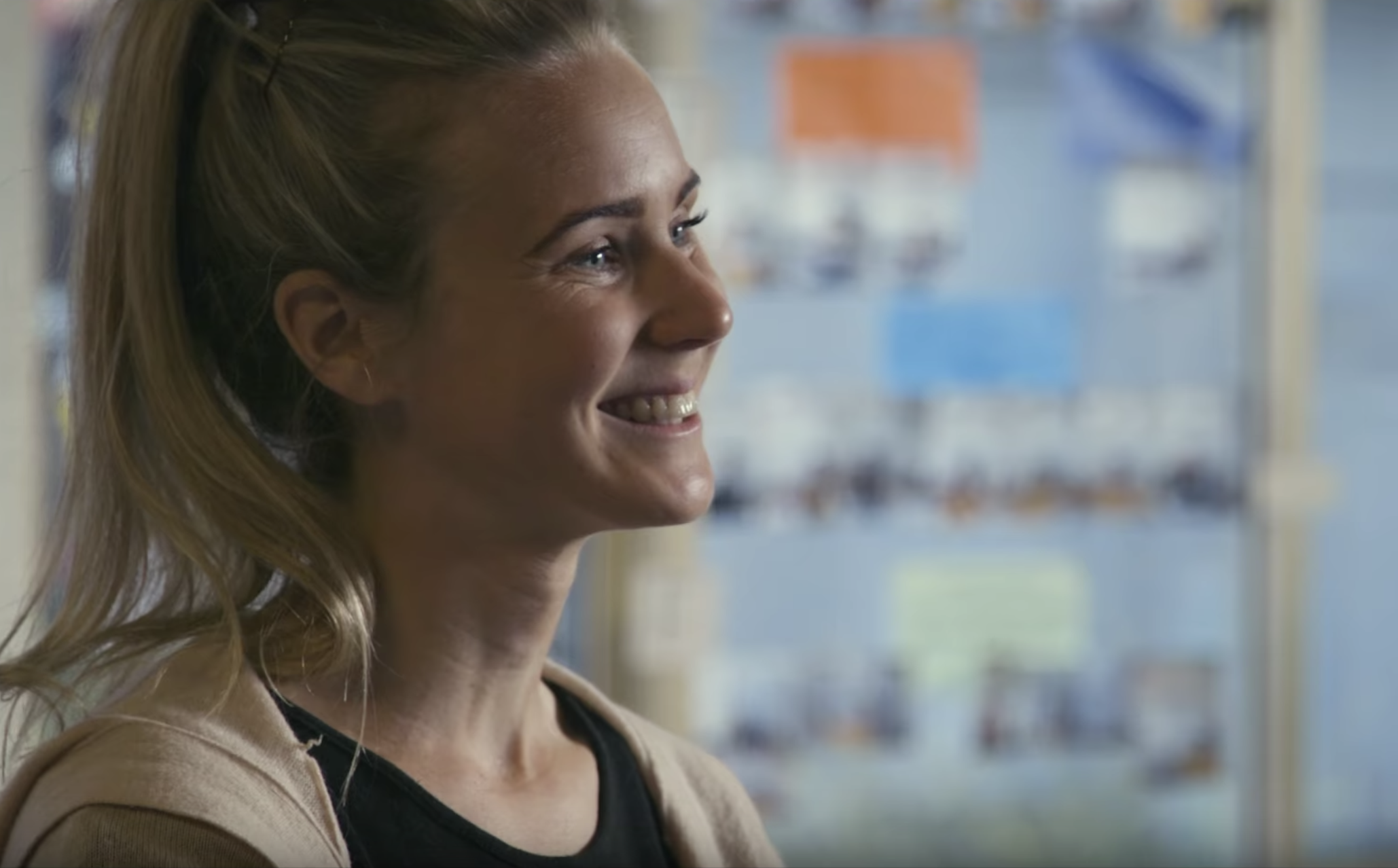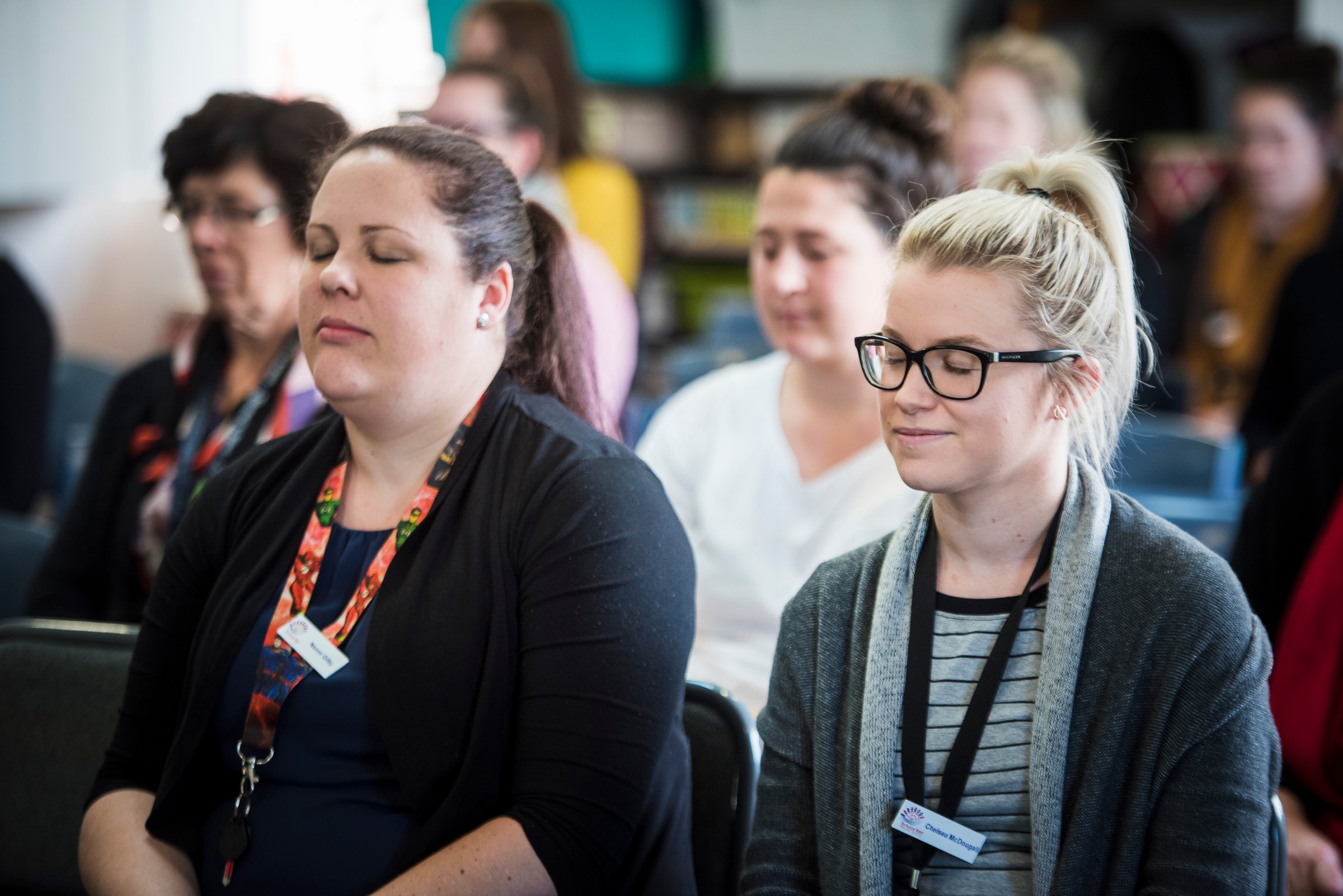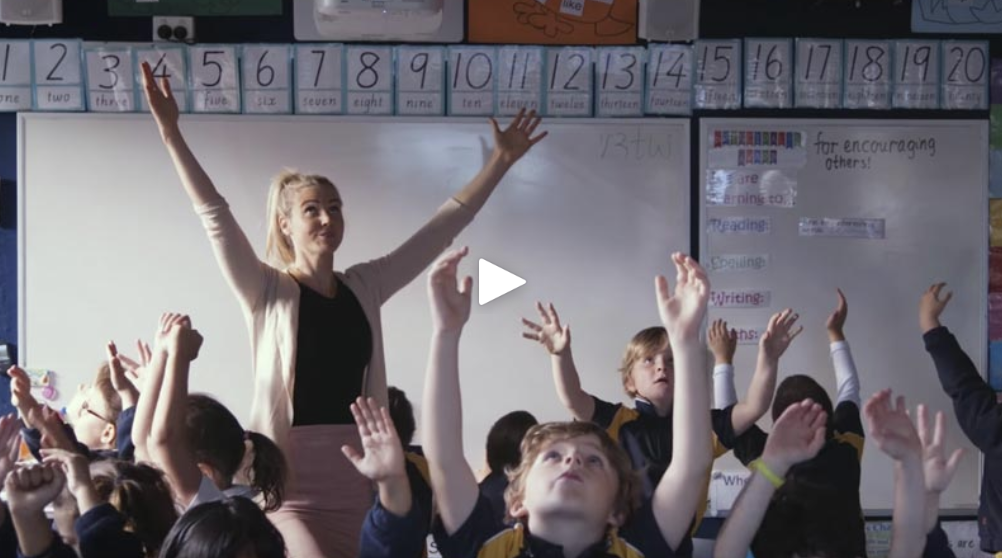Mindfulness is a skill for life.
Mindfulness can calm the mind, focus our attention and help us make the most out of any situation.
Mindfulness is about focusing attention on the here and now, rather than thinking about the past or worrying about the future. Good mental health is grounded in being mindful.
Bringing mindfulness in to your school and being a role model for students, sets your young people up for the future and their career.
Meet Anna, a Mindful Teacher.

She uses Smiling Mind in her school to support continuing to be a mindful teacher, colleague, friend and fellow human being.
This is her story where she discusses her experience with mindfulness in education and her top 3 surprising effects of mindfulness for teachers.
I am a perfectionist, and it can be a curse.
The idea of meditation in schools and mindful learning used to slightly intimidate me. Like others when they are beginning to explore mindfulness, I once held the misconception that I wasn’t doing it right if thoughts interrupted me.
We live in a society where we experience instant gratification and have learnt to expect it. As a result, we are less patient. This makes mindfulness in schools so important, and something we need to be aware of is that it will take time and perseverance to really feel the benefits.
Finding mindfulness
My own mindfulness journey began after moving from the green hills of Tasmania to the busy streets of London. I caught the ‘rushing syndrome’, and that, combined with a teaching career at a school which held an incredible demand for achieving ‘perfection’, caused my overstimulated brain to lose its connection with my purpose.

However, the more I practiced mindfulness, the more I found that my actions and thoughts better reflected my values, bringing more joy into my life.
Many of us are blessed to have someone in our lives who is an influential and calming presence. For me, it was my dad. Being on the other side of the world though, meant I had to build those regulation skills within myself.
I quickly realised that we are the only ones who have control over our wellbeing; if we want to be that grounded person for others, and ourselves, it can only be done through our own practice.
Mindfulness, meditation and the Eiffel Tower
I was fortunate to have identified the need to incorporate mindfulness practice in my lifestyle, and learnt some brilliant tools and philosophies from Zen Master Thich Nhat Tan in France.
Upon returning to Australia though, my days meditating and being mindful or at least living in a more mindful state seemed to fade into the background. I began to feel the rising pressures of working at a new school. Thankfully, a colleague introduced me to Smiling Mind, and I immediately loved the ease with which I could fit it into my day in the classroom. I was back on track thanks to this incredible app.
Mindfulness for the whole school
When I thought about how I was going to implement mindfulness across my school, it was overwhelming, but trusting in my personal experience and the support from Smiling Mind I knew just how right it was for my students, my school and myself.
Using Smiling Mind as a mindfulness tool in an education setting is not just about teaching meditation to the children. In order to teach wellbeing, you must first have the skills I alluded to above; discipline, self regulation and acceptance.
Mindfulness for teachers
I have found Smiling Mind to be a brilliant tool that first and foremost educates teachers on how to be more aware and grounded, whilst forming the habit to share the practice with their students. As a result, it assists in developing self awareness in recognising the physical symptoms of an overloaded brain for our teachers.
Teaching can be a fast-paced and sometimes overwhelming career.
According to the Australian Bureau of Statistics, 53% of people who hold a teaching degree do not currently work in education. That's the majority!
Some level of anxiety is normal; however at many schools, we are seeing it to the point where students and teachers alike are finding it hard to switch off. Some devices and social media are designed to be addictive, and brains are being stimulated more than ever before. It is imperative to instil the most important mindfulness skills, in both teachers and students, being awareness and compassion for themselves and others.
Key to successfully implementing mindfulness in your school
The key to success of using Smiling Mind as a wellbeing tool in my own workplace is also largely due to all three stakeholders being part of the process: teachers, students and parents.
My view of mindfulness has opened up beyond focused breathing exercises. I have noticed a shift in my interactions with people; a genuine hello to the tram driver, combined with a smile and eye contact, listening completely to a conversation on the phone (without trying to multitask!), and resisting the urge to reach for my phone while waiting for someone.
Mindfulness practices for teachers, helps immensely to peel back the layers that can mask our purpose. It allows us to quieten our often over-stimulated brains, and when we focus on being present, we feel authentic, lighter and more balanced.
3 surprising effects of mindfulness for teachers
Here's how mindfulness helps you be a better teacher, friend, human.
- Improved sleep
Assessments piling up for marking keeping you awake at night? Practising mindfulness of an evening can greatly increase your quantity and quality of sleep. - Enhanced student & parent engagement
Mindfulness can help you connect and relate more easily with students and parents alike, thereby increasing engagement levels across the board. - More workplace satisfaction
If the thought of going into work is a hard one, mindfulness can help. You can find great satisfaction in any workplace by practising mindfulness, through deeper connections with colleagues, feeling less stressed and more grateful. Smiling Mind has found by incorporating their curriculum an increase in teacher job satisfaction overall.
Not only will teachers minds benefit from mindfulness practices, however their classroom environment, social lives and personal lives may also benefit.
Teachers who practice mindfulness sleep better, are less stressed and have improved student relationships.
Now try telling me you don't want more of that!
Everything Smiling Mind does with the app is backed by evidence, which is why they have published research to support the beautiful effects of mindfulness for teachers here and have published Evidence Based Guidelines for Mindfulness in Schools here.
It is an absolute pleasure to share all of this with my students through an innovative tool like Smiling Mind.
Watch Anna's story here.
See this story come to life as she walks us through her day below.










.jpg)




